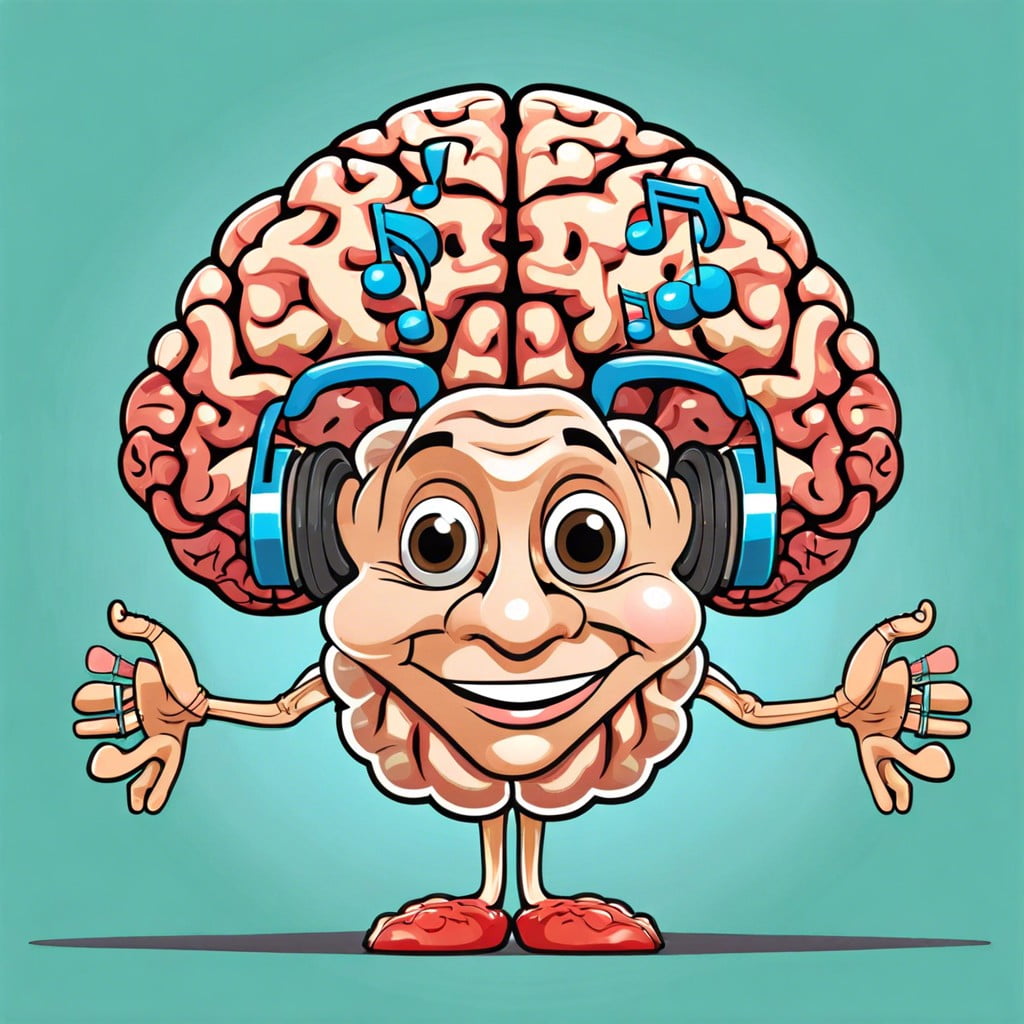Curious if music actually boosts productivity at work or in your daily grind?
Key takeaways:
- Music releases dopamine, boosting mood and motivation.
- Background music helps drown out distractions and focus.
- Classical and instrumental music can enhance concentration and productivity.
- Different tasks react differently to background music.
- Familiar music helps maintain concentration and minimize distractions.
The Science and Myths Behind Music and the Brain

When it comes to music and the brain, there is more than meets the ear. Some say listening to classical music turns you into Einstein, while others believe rock music is a productivity killer. So, what’s the deal?
First off, music releases dopamine, the feel-good neurotransmitter, which can boost mood and motivation. But wait, there’s more! Here are some key points to know:
– The “Mozart Effect”: This theory suggested listening to Mozart could make you smarter. Spoiler alert: it turns out to be more about temporarily boosting spatial reasoning than becoming a genius.
– Soundtrack of your life: Background music can help drown out distracting noises. Think of it as a personal ear-muffler against your noisy co-workers, the barking dog next door, or even that awkward silence.
– Tempo matters: Faster tempos can increase alertness, while slower ones can help you relax. It’s like choosing between a double espresso and a calming herbal tea.
Remember, your brain is unique, just like your playlist!
What Do Scientific Studies Say About Music and Productivity?
Some studies reveal music can enhance efficiency. Researchers found that music with a moderate tempo and no lyrics, like classical or instrumental, can boost concentration. It helps block out background noise, making it easier to focus.
However, not all tasks benefit. Complex tasks requiring deep concentration may suffer from any additional noise. Reading comprehension, for instance, can decline if your brain is juggling between the music’s melody and the text.
Interestingly, people feel better while working with music—thank you, dopamine! This feel-good vibe can lead to more energetic and motivated work sessions.
So, while music isn’t a magic wand, it can help under the right circumstances. Choose your playlist wisely!
Music Types That Increase Productivity
Classical music, especially Baroque pieces like Bach or Vivaldi, is often cited for boosting concentration. It’s like your brain saying, “Ah, yes, let’s decipher these spreadsheets in style.”
Instrumental music is great when words are too distracting. No lyrics means no temptation to belt out a chorus mid-task. Think smooth jazz or even ambient electronic beats.
Nature sounds can also enhance productivity. Waterfalls, rain, or birds chirping can create a calming environment, perfect for reducing stress.
Video game soundtracks are surprisingly effective. They’re designed to keep you engaged and focused. So, the next time you need to power through a deadline, imagine yourself on a heroic quest to defeat the evil overlord of procrastination.
Lastly, pick what you love. If death metal makes you feel like you can conquer the world, go for it! Just maybe not in the middle of a quiet office.
Tasks Affected By Music
Ever notice how assembling IKEA furniture feels like a solitary drum solo, but writing an email with a catchy tune feels like a scene from a feel-good movie? Different tasks react differently to background jams.
Repetitive tasks like data entry can benefit from music, especially if it has a consistent rhythm. It can make the mundane more bearable, like adding sprinkles to plain vanilla ice cream.
Creative tasks, on the other hand, can be a bit finicky. Some people find that instrumental music helps their creativity bloom by providing a harmonious backdrop without the distraction of lyrics.
When it comes to learning and comprehension, though, things get trickier. Complex tasks requiring high cognitive function often need silence or minimalistic sounds to ensure information sticks.
Finally, administrative duties like answering emails or organizing files can be more enjoyable with your favorite playlist, as they often don’t require deep focus. Adding some rhythm might even speed things up.
Familiarity Is Best for Focus
Familiar music helps maintain concentration. When you hear a song you know well, fewer brain resources are needed to process it. This leaves more mental power for your tasks. Think of it like old reliable friends—comforting and predictable.
Listening to familiar tunes can minimize distractions. New or complex music can trick your brain into paying more attention to it. It’s like introducing a shiny new toy to a toddler—instant focus shift.
Instrumental tracks work wonders. Lyrics can hijack your thought stream. You’re trying to draft an email, but suddenly you’re lip-syncing to the latest pop anthem. Stick to those lyric-free playlists when deep focus is needed.
Last, consider your mood. Happy tunes can uplift your spirits, while mellow beats can keep your anxiety in check. Knowing your own music preferences can create the best soundtrack for productivity.